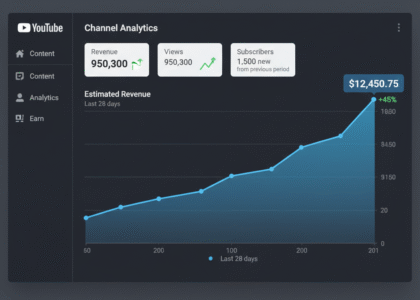Investing can feel intimidating, especially if you’re new to the world of personal finance. But the truth is, beginner investment tips are all you need to start building your financial future. 2024 offers a fresh opportunity to take control of your money and grow your wealth through smart, strategic investments. Whether you’re aiming to save for retirement, a down payment on a home, or just want to make your money work harder, this beginner’s guide will help you navigate the exciting journey of investing.
Why Should You Start Investing in 2024?
With the new year comes new opportunities, and investing is one of the best ways to secure your financial future. Here’s why you should consider getting started:
- Beat Inflation: The rising cost of living can erode the value of your savings. Investing helps you outpace inflation and preserve your wealth.
- Grow Your Wealth: Historically, investing in stocks, bonds, and other assets offers better long-term returns compared to traditional savings accounts.
- Achieve Your Financial Goals: Whether you’re aiming for early retirement or saving for a major purchase, investing is key to meeting your goals faster.
Pro Tip: Starting early gives you a massive advantage thanks to compounding, so don’t wait!
Step 1: Define Your Financial Goals Beginner investment tips

Before you dive into investing, it’s important to clarify what you’re working towards. Ask yourself:
- What are your long-term and short-term financial goals?
- How much risk can you tolerate?
- When do you plan to need the money?
Your goals will shape the way you invest. For example, if you’re saving for retirement in 30 years, you can take on more risk with stocks. But if you’re investing for a down payment on a home in a few years, you may want to focus on safer, more stable options.
Step 2: Understand Your Investment Options
As a beginner, it’s crucial to understand the different types of investments available. Here are some of the most common options:
Stocks for Beginner investment tips
Buying shares of companies means you’re purchasing a portion of their ownership. Stocks can be volatile, but they offer higher potential returns over the long term.
Bonds for Beginner investment tips
Bonds are a safer investment option compared to stocks. When you buy a bond, you’re essentially lending money to a company or government in exchange for regular interest payments.
Mutual Funds & ETFs for Beginner investment tips
Both mutual funds and exchange-traded funds (ETFs) pool money from multiple investors to buy a variety of assets. These funds provide diversification and are ideal for beginners who don’t want to pick individual stocks.
Real Estate for Beginner investment tips
Investing in property can be a great way to build wealth, but it requires a higher upfront investment and ongoing management. For beginners, real estate investment trusts (REITs) are a more accessible alternative.
Step 3: Set a Budget for Investing


Once you understand the different types of investments, it’s time to decide how much you’re willing to invest. A good rule of thumb is:
- Start small: If you’re just beginning, start by investing small amounts regularly. Even $100 a month can compound over time.
- Follow the 50/30/20 Rule: Allocate 50% of your income to needs, 30% to wants, and 20% to savings and investments.
Step 4: Choose an Investment Platform
In today’s digital world, there are numerous platforms available for beginner investors. Here are a few popular choices:
- Robo-Advisors: Platforms like Betterment or Wealthfront automatically manage your investments based on your risk tolerance and financial goals.
- Brokerage Accounts: With services like Fidelity, Vanguard, or Robinhood, you can choose your investments and manage them yourself.
- Micro-Investing Apps: Apps like Acorns round up your purchases and invest the spare change in diversified portfolios, making it easy to start investing with very little effort.
Step 5: Diversify Your Portfolio
One of the most important tips for beginners is diversification. By spreading your investments across different types of assets, you reduce the risk of major losses. This could include:
- Stocks for growth
- Bonds for stability
- Real Estate or REITs for income
- Commodities or International Investments for additional diversification
A diversified portfolio helps ensure that one poor-performing asset doesn’t wipe out your entire investment.
Step 6: Monitor Your Investments

Once you’ve made your investments, it’s important to track their progress. However, avoid obsessing over short-term market fluctuations. Remember, investing is a long-term game.
- Check quarterly or annually: Revisit your portfolio regularly to ensure it’s still aligned with your goals.
- Stay updated on market trends: Follow trusted sources like Investopedia for financial news and updates.
Step 7: Be Patient and Stay Consistent
Investing isn’t about getting rich quickly. It’s about building wealth over time. One of the most important investment tips for beginners is to stay consistent and avoid emotional decisions.
- Stick to your plan: Don’t panic during market dips.
- Invest regularly: Even during tough times, continue putting money into your investments to take advantage of market fluctuations.
Start Your Investment Journey Today Beginner investment tips
It’s never too late to start investing, but the earlier you begin, the better. With these beginner investment tips, you can build a portfolio that works for you and your future.
FAQs
1. How much should I start investing with as a beginner?
You can start with as little as $50 to $100 per month. The key is to start early and stay consistent.
2. What’s the best investment for beginners in 2024?
Index funds and ETFs are great choices for beginners due to their low cost, diversification, and simplicity.
3. Should I invest in individual stocks?
Individual stocks can be risky, but they offer higher returns. Consider starting with mutual funds or ETFs to spread out your risk.
4. How do I track my investments?
You can use investment apps or brokerage account dashboards to monitor your portfolio’s performance.
5. Can I lose all my money by investing?
While all investments come with risk, diversification and a long-term strategy can minimize the chances of significant losses.
Discover More on GetCashVibe!
Want to take control of your financial future? Explore GetCashVibe today for more tips on how to start investing and achieve your financial goals!






